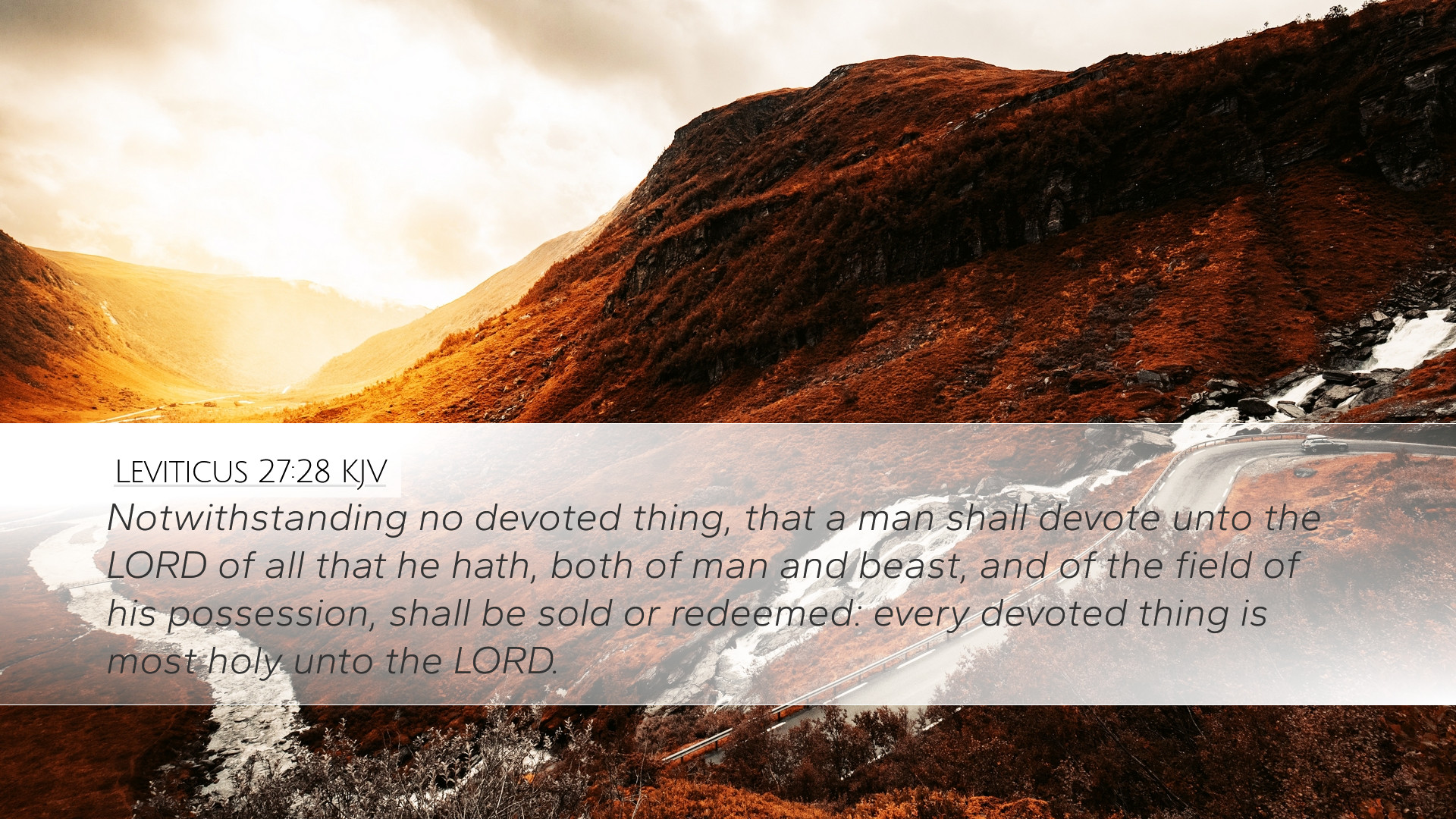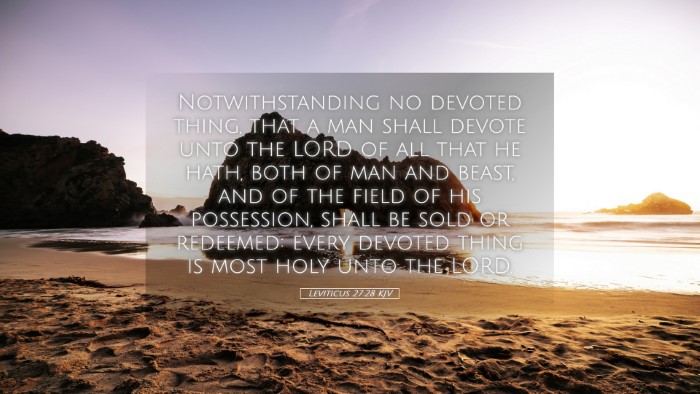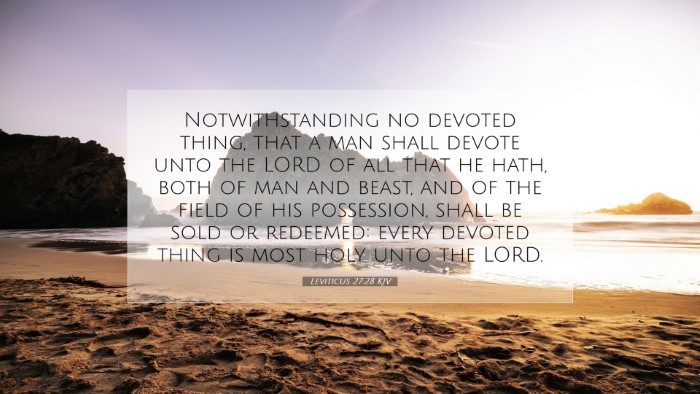Commentary on Leviticus 27:28
Leviticus 27:28 states: "Nevertheless no devoted thing that a man shall devote unto the LORD of all that he hath, both of man and beast, and of the field of his possession, shall be sold or redeemed: every devoted thing is most holy unto the LORD." This verse encapsulates significant theological and practical principles regarding dedication and the sanctity of what is devoted to God.
Contextual Background
The book of Leviticus primarily focuses on the laws and rituals given to the Israelites, serving as a manual for holiness and worship. Chapter 27 deals specifically with vows and the sanctity of dedications to the Lord. The concept of 'devoted things' is vital, as it implies items or beings set apart for God's purpose, reinforcing that they cannot be redeemed or sold, which reflects their sacred status.
Theological Insights
Several key themes emerge from this verse:
- Divine Ownership: The Scriptures recognize that all things belong to God. By dedicating something to the Lord, the individual acknowledges God's sovereignty over all possessions.
- Holiness and Separation: Designating something as 'devoted' separates it from common use. Matthew Henry notes that this separation emphasizes the necessity of purity in offerings made to God.
- Irreversibility of Devotion: Clarke and Barnes echo that once something is devoted, it becomes irrevocably consecrated to God, forbidding its sale or redemption. This indicates that commitment to God is total and absolute.
Commentary from Public Domain Sources
Matthew Henry's Insight
Henry emphasizes the necessity of maintaining the sanctity of devoted things, stating that they are “most holy unto the LORD.” His commentary suggests that the act of dedicating something to God should evoke a sense of reverence, and that such devotion reflects a believer's acknowledgment of God's ultimate authority and control over life.
Albert Barnes' Interpretation
Barnes highlights the irredeemability of devoted items, indicating that this law serves to maintain a sense of solemnity in worship. He suggests that it acts as a deterrent against the trivialization of sacred things, encouraging believers to fully commit themselves to God without expectation of return or reversal.
Adam Clarke's Remarks
Clarke expands on the concept of devotion, mentioning that such vows should stem from genuine intent rather than obligation. He reflects on the human tendency to bargain with God, reminding readers that true devotion is an acknowledgment of grace and mercy. The importance of sincere hearts in making such vows cannot be overstated.
Practical Applications for Believers
There are several practical takeaways for pastors, students, theologians, and scholars from Leviticus 27:28:
- Understanding Commitments: This verse encourages a reflective approach to commitments made to God. Believers should consider carefully before dedicating their resources, time, or themselves to His service.
- Encouragement of Worship: By recognizing the seriousness of devoting aspects of life to God, communities of faith can foster a deeper reverence and gratitude for what it means to be given to the Lord.
- Application of Holiness: The dedication of items—as well as time and talents—should invoke a call to holiness, teaching that all aspects of life can and should be sacred.
Conclusion
Leviticus 27:28 serves as a profound reminder of the concept of devotion in the life of a believer. The insights gathered from public domain commentaries enrich our understanding of how devotion operates within the covenant community. As believers consider their commitments to God, they are called to approach Him with the awareness that what is dedicated is ultimately for His glory and purpose. Through studying this verse, we learn not only the significance of our offerings but also the importance of ensuring that our lives reflect the holiness expected of those who belong to God.


